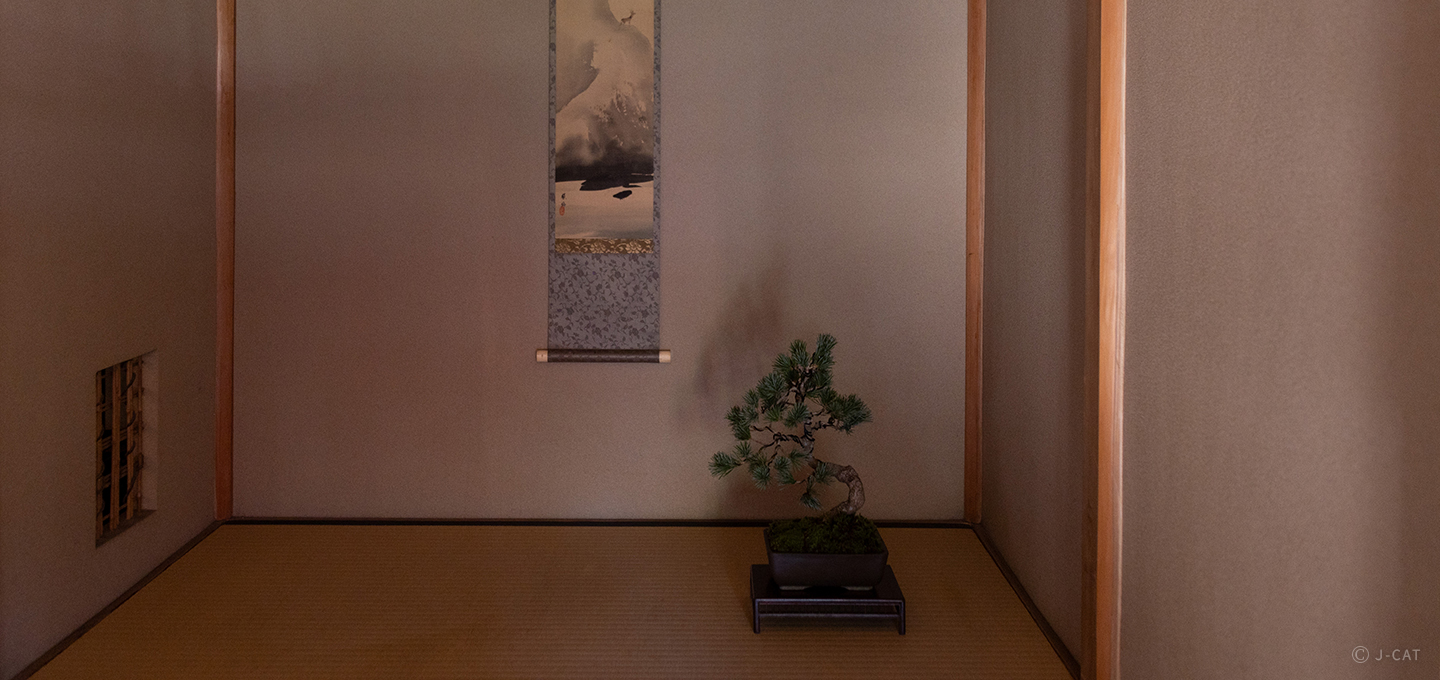
Special Experience
Tokyo
Bonsai Creation and Tea Ceremony at Master Kunio Kobayashi’s Shunkaen Bonsai Museum
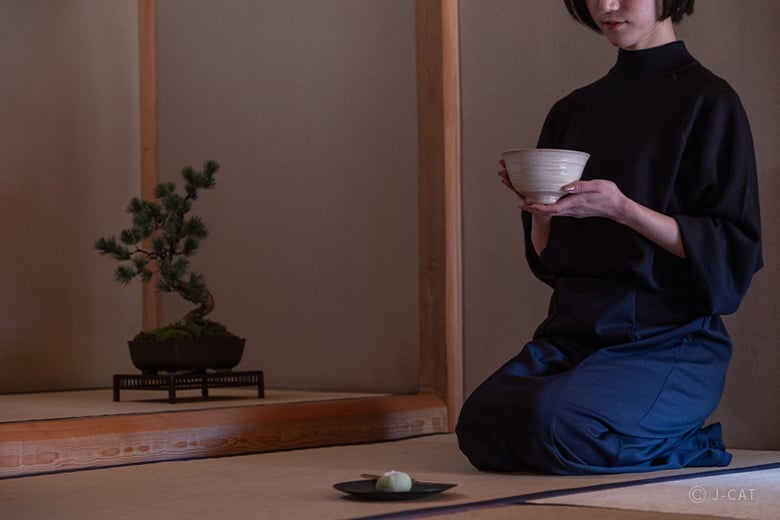
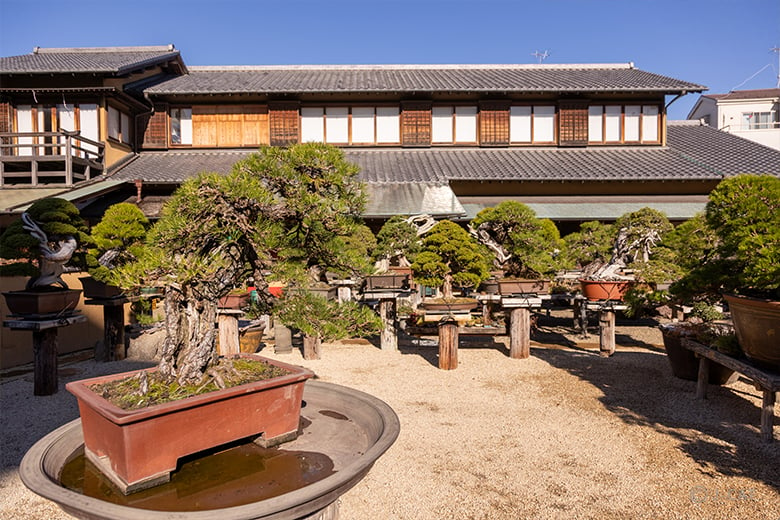
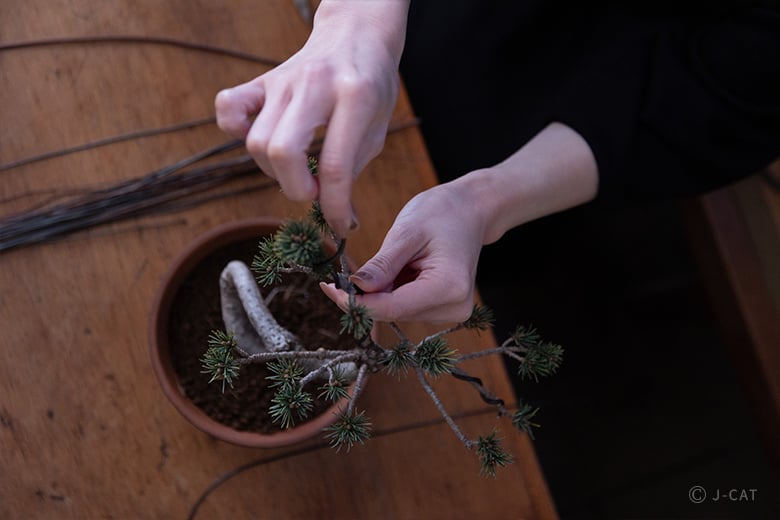
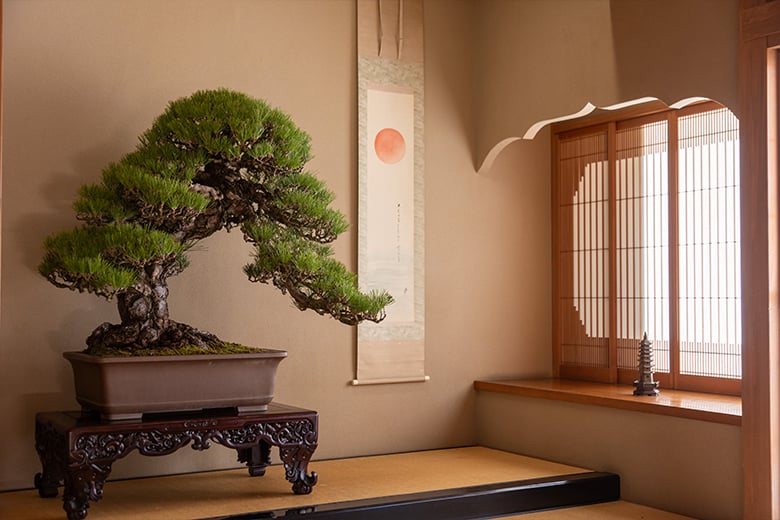
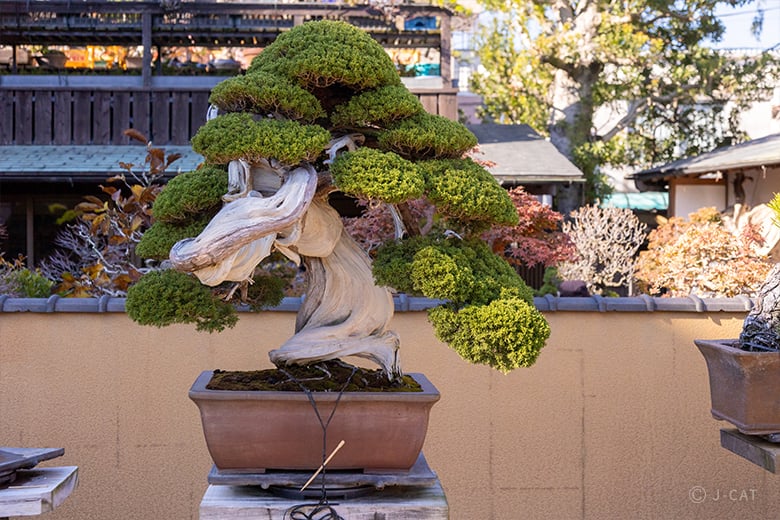
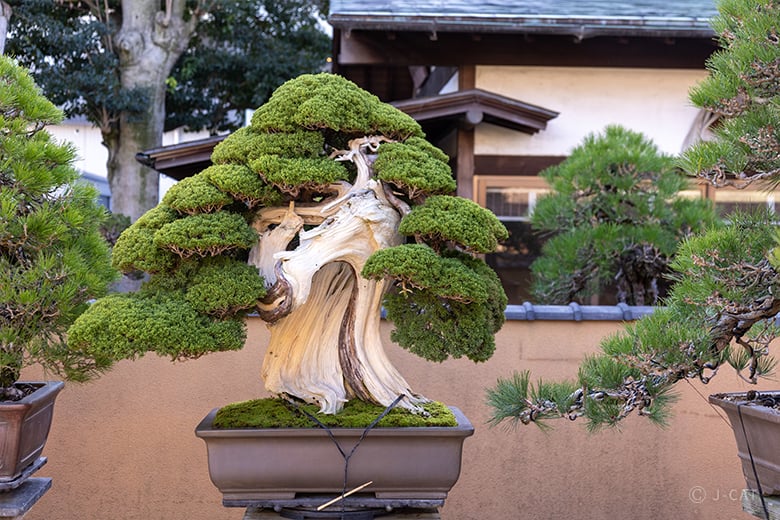
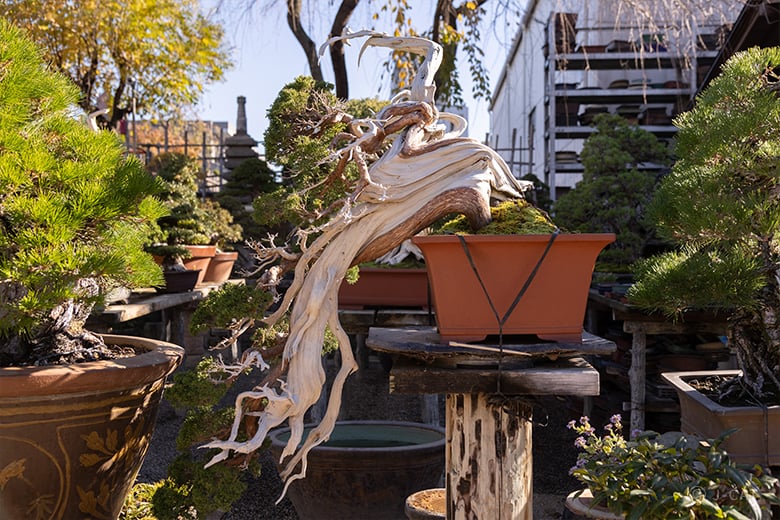
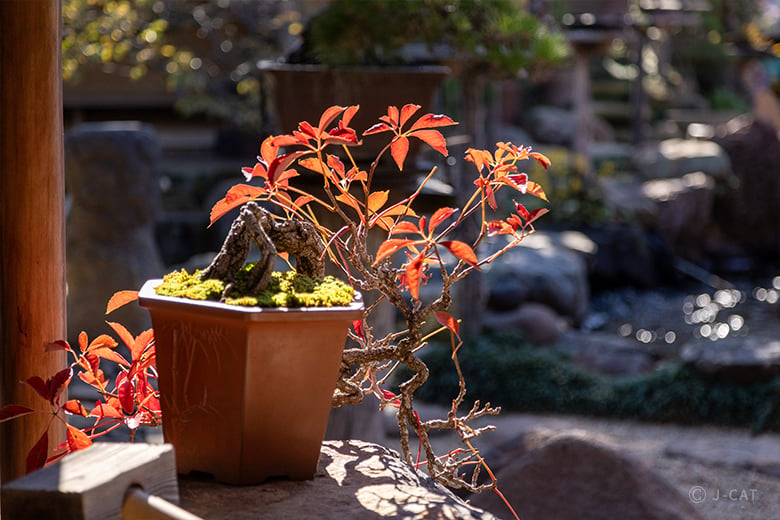
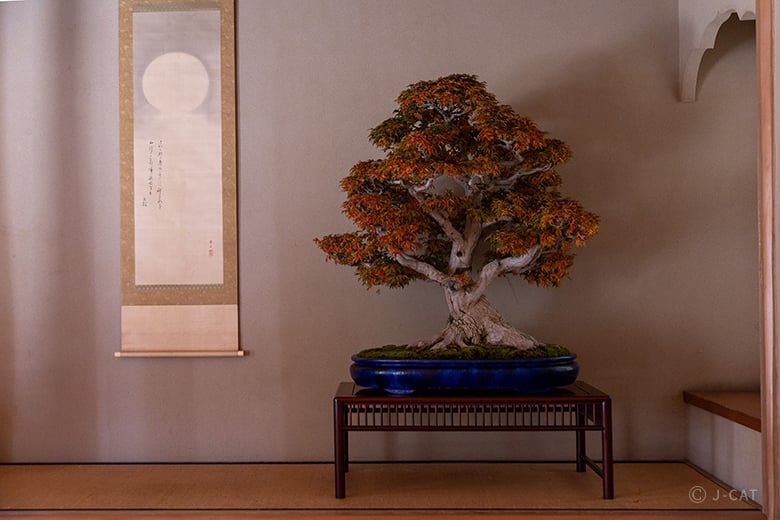
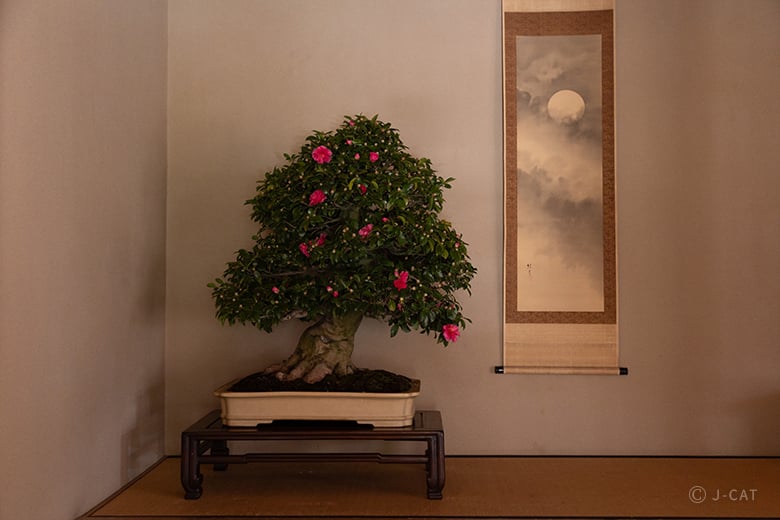
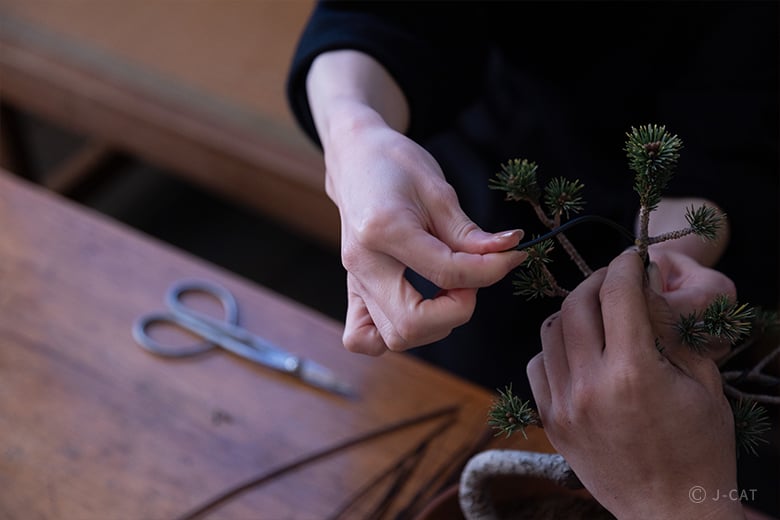
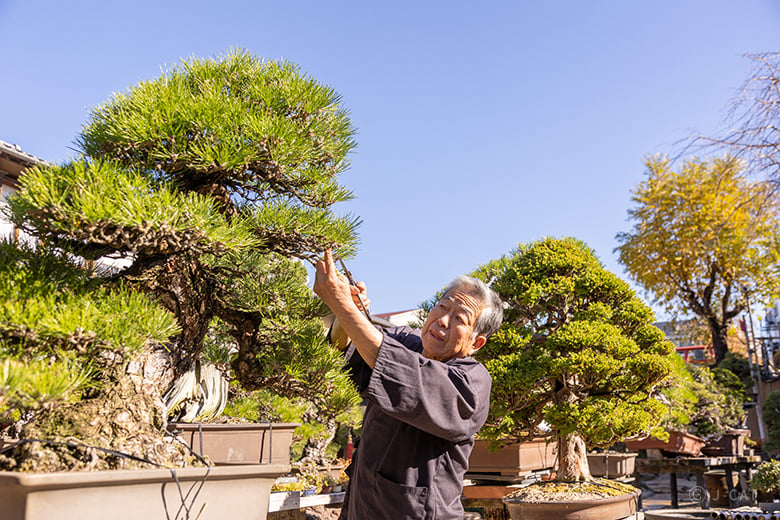
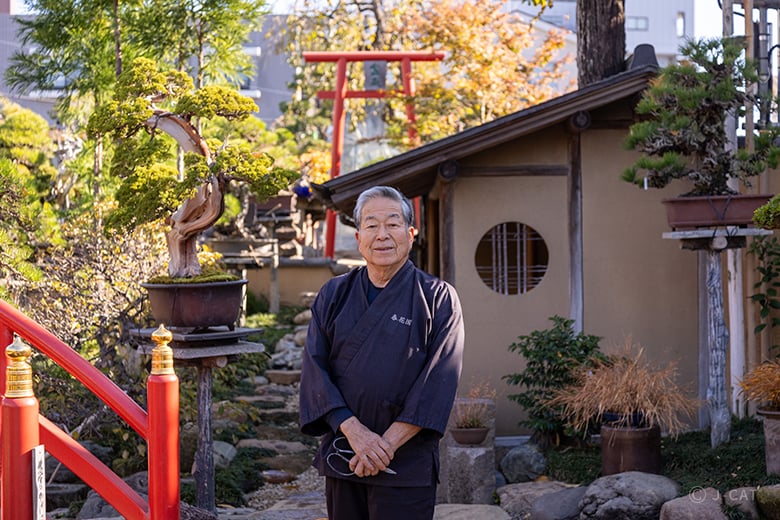
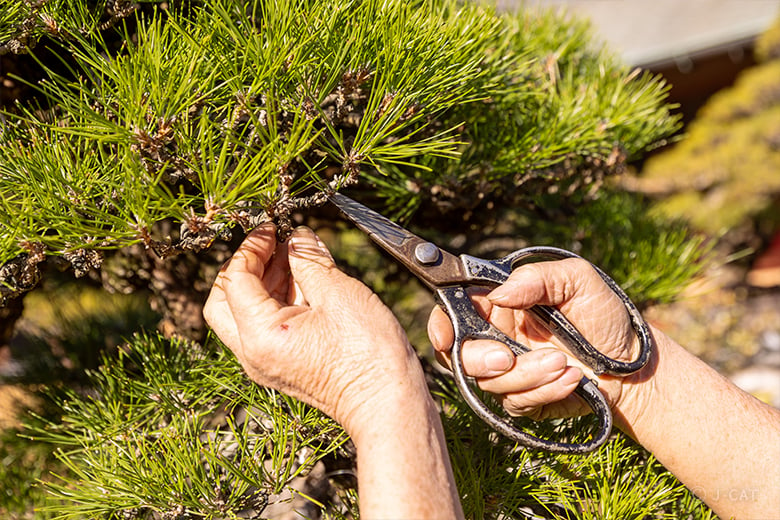
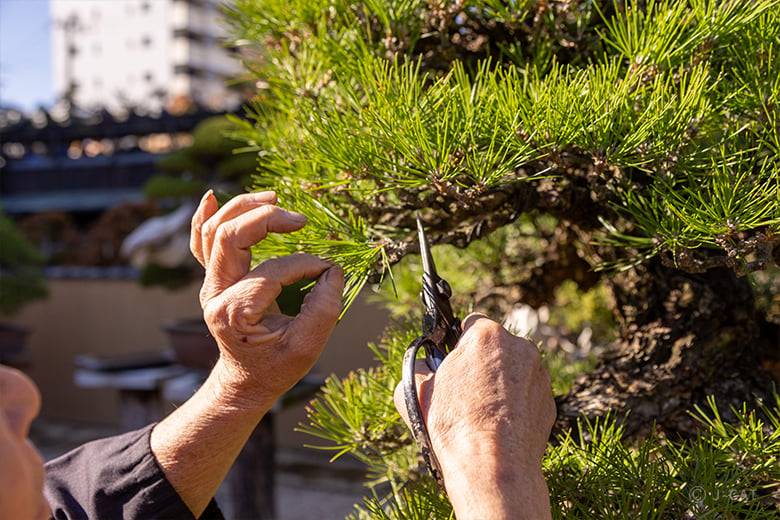
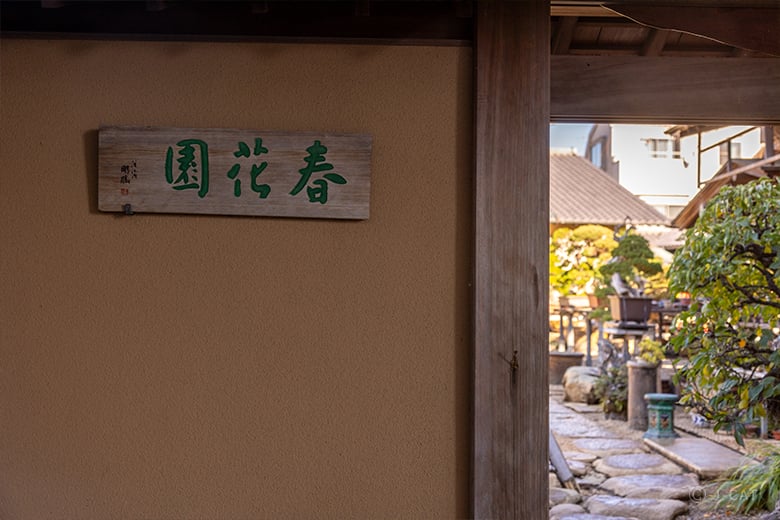
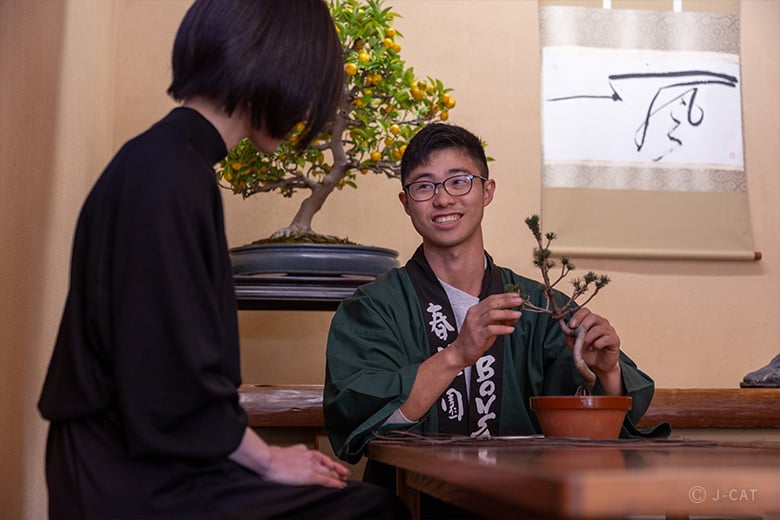
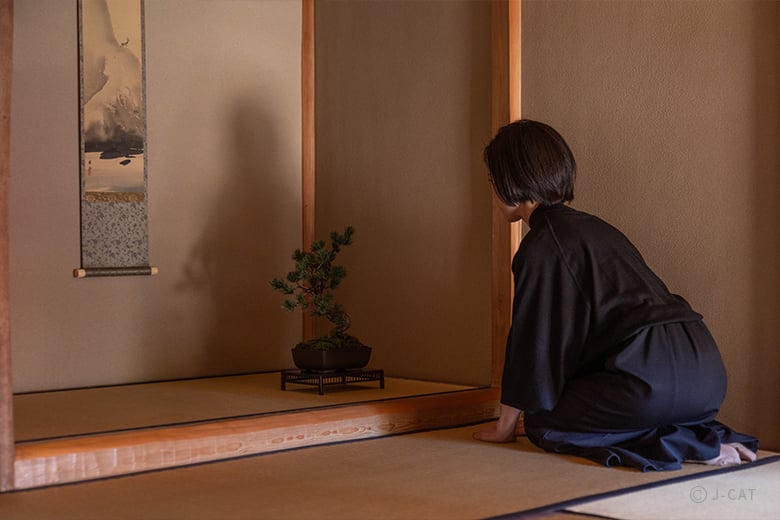
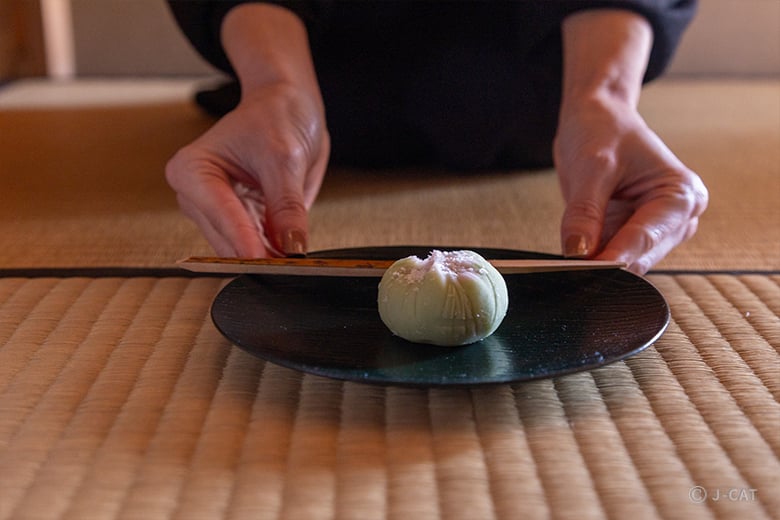
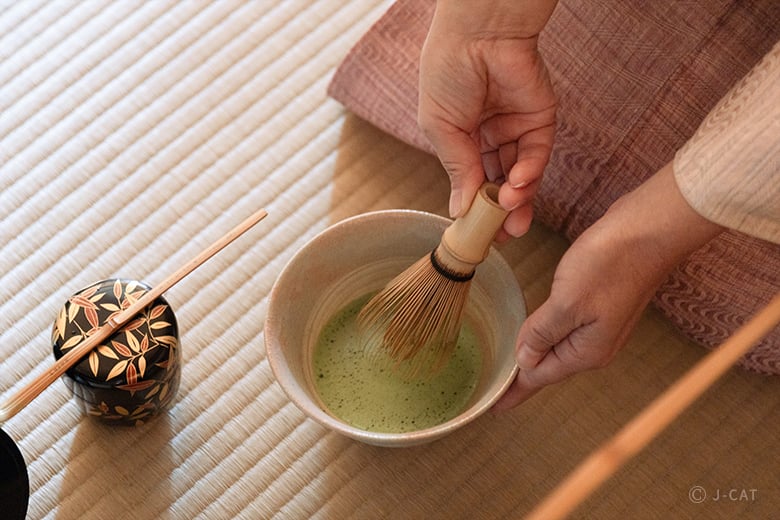




















Overview
World-renowned bonsai artist Kunio Kobayashi (b. 1948) founded the Shunkaen Bonsai Museum in Tokyo’s Edogawa Ward in 2002. In this Wabunka original plan you can enjoy viewing the bonsai exhibited here accompanied by expert commentary before getting hands-on with the craft of bonsai itself, learning and putting to practice the essential techniques of wiring and pruning. Finish the experience with the refined tranquility of Japanese tea ceremony in a traditional tearoom, with your newly-created bonsai tree as the centerpiece of the room’s alcove. Come to appreciate bonsai trees as the living things that they are, immersing yourself in the sophisticated aesthetics of Japan through two of its hallowed traditional arts.
Key Features
・Experience bonsai and tea ceremony at bonsai master Kunio Kobayashi’s Shunkaen Bonsai Museum.
・Enjoy a guided tour of the garden – home to over a thousand master-level works of bonsai art – deepening your understanding of Japan’s unique aesthetic culture.
・With instruction from a master bonsai artist, try your own hand at molding a bonsai tree into an artful shape before settling down to a tea ceremony in an elegant tearoom.
Tokyo
100mins
from ¥27,000 /person
1 - 12 participants
Available in English
Cancel free up to 4 days prior
Details
An Art Museum Specializing in Bonsai, Founded by World-Renowned Bonsai Master Kunio Kobayashi
Shunkaen is Japan’s first ever dedicated Bonsai museum. With 2,600 square meters of floor space in Tokyo’s southeastern Edogawa Ward, the museum boasts over 1,000 bonsai works on display – not to mention a stately Japanese garden and a number of tearooms in a traditional house-like structure – and attracts 50,000 visitors from all over the world every year. People come most of all to delight in bonsai, but enthusiasts of tea ceremony, kimono, and other traditional fine arts also make up no small part of these.

An iconic traditional “drum bridge” spanning the garden pond, in which majestic ornamental carp loll
Shunkaen’s founder and owner Kunio Kobayashi is a legend in the bonsai world for his unparalleled sensibilities. Thirty-time recipient of the Japanese bonsai world’s most prestigious awards, he is highly sought-after both domestically and abroad by would-be bonsai acolytes. His nicknames include “The Sky-Flying Bonsai Artist” and “The Hundred Million Yen Bonsai Maker,” for his globetrotting work and the shockingly high price that have been paid for his pieces.

Kunio Kobayashi: “I spend 15 hours a day immersed in bonsai, and I never lose interest in it – I’m completely in its thrall”
This Wabunka plan gives visitors the chance to deepen their understanding of bonsai in tandem with the delights of tea ceremony, combining two of Japan’s most iconic cultural traditions.
A Guided Garden Tour, with Master Commentary on a Variety of Unique Bonsai
After a welcome drink and greeting from your instructor, peruse the vast array of bonsai on display in the garden at your leisure. You can use this time to begin formulating a sense of what exact features or styles speak most to you personally. After your free wander, enjoy a second pass through the garden with your instructor as guide and commentator to further develop your sensibilities.

Enjoy viewing bonsai not only in the garden, but inside the traditional “house” structure as well
In Kobayashi’s view, the real beauty at the core of bonsai is the dignity of life itself. These are works of art created of living beings, in which life and non-life coexist as one, and this is what touches the soul. As living things, each has a different size, color, and shape, and evokes emotion in each person differently. Find the one that speaks to you.

Kobayashi declares his philosophical lodestones for bonsai: uniqueness, balance, elegance, and personality
Bonsai Basics: Living Artwork
After the garden viewing, move on to learning the basics of the craft. What makes a bonsai a bonsai? Enjoy acquiring a range of new knowledge ranging from botany to history, from a master bonsai artist who has studied directly under Kobayashi himself.

A bonsai master with vast knowledge and proven skill elucidates the craft
Once you have the basic theory, it’s time to get hands-on with practice. The species offered will vary with the season, but beginner-friendly types like Japanese white pine (Pinus parviflora) and Chinese juniper (Juniperus chinensis), with their pliable branches, will be on hand. You’ll focus on pruning and wiring branches, two essential techniques for shaping bonsai beautifully. Feel your emotional connection with the plan before you grow as you work with it.

By tending and caring for your bonsai, you can truly feel its destiny become entwined in yours – a communion not unlike that between close family members
Bonsai artists frequently seek to express the natural beauty of landscapes they have encountered in their real lives. Think of mountains or fields or other natural features that have moved you in the past, and envision recreating their beauty.
Tea Ceremony in a Tearoom Adorned with Your Own Bonsai as the Alcove Piece
After working with your bonsai, enjoy a tea ceremony. Japanese tearooms traditionally feature an alcove space referred to as the tokonoma, in which seasonal flowers and art pieces are arranged to give the space character. Here, you can display your freshly crafted bonsai while you sit down to tea. Having the chance to really get to know your bonsai – first as the artist creating it, next as the tea ceremony attendee viewing it – can open your eyes to new perspectives on the craft.

Bonsai take on very different aspects depending on where and how they are displayed
While appreciating the bonsai in the relaxing serenity of the tearoom, enjoy a cup of matcha (usucha thin tea) prepared by your instructor alongside sweet and sophisticated confections.

The graceful choreography of matcha preparation
Bonsai and Tea Ceremony – Two of Japan’s Most Iconic Traditions, Intertwined
Bonsai and tea ceremony were both introduced to Japan from China and took popular root during the Muromachi Period (1336-1573), after which they continued to develop independent of their origins. Both have become popular icons of Japan’s cultural traditions domestically and abroad, and while at first that may appear to be all they have in common, their connection in fact runs much deeper. Plant growth and tea leaves, stillness and motion. Get to know the uniquely Japanese beauty of each directly through all five senses.

This experience aims to bring us into closer touch with the deep well of quiet, moving beauty buried deep within all of our hearts. By bringing it to the surface through your own hands, you may find new doors opened to previously buried or elusive sensibilities. Luxuriate in this enriched aesthetic self-knowledge in an artistically inspiring, deeply atmospheric, and uniquely Japanese setting.

An escape from hectic modern life into bonsai’s therapeutic aura
Shunkaen Bonsai Museum

Shunkaen Bonsai Museum
Founded in 2002 by bonsai master Kunio Kobayashi to be the first art museum where bonsai takes center stage, this facility’s spacious grounds contain a garden and a traditionally constructed “house,” throughout which over a thousand bonsai works are displayed. It is famous for many things, but none more than Kobayashi’s solitary sense of beauty through traditional Japanese culture. To date, it has educated more than 150 students from all over Japan and the wider world, and it serves as a base for further popularizing and passing on bonsai culture to younger generations.
Customer's Voice
Fantastic service and knowledge. Awesome, super cool setting and very nice staff.
A.G. United States
The people were very knowledgeable, deeply experienced, kind, incredibly welcoming. We learned a great deal and very much enjoyed everyone we met. We can't recommend it enough. We will keep the memories and knowledge we learned for a long time.
G.B. United States
The team at the Shunkaen are absolutely wonderful and we really appreciated their time and knowledge. They were thoughtful and caring in helping us learn and understand bonsai and traditional tea ceremonies.
B.K. United States
Location
Shunkaen Bonsai Museum
Edogawa Ward, Tokyo
Request for booking
Select first preferred date (JST)
February 2026
Sun
Mon
Tue
Wed
Thu
Fri
Sat
Instant Booking
Request Booking

17
Full

17
Unavailable
- Instant Booking: Your reservation is confirmed immediately upon payment.
- Request Booking: You will receive confirmation after the host reviews your request.
Tokyo
100mins
from ¥27,000 /person
1 - 12 participants
Available in English
Cancel free up to 4 days prior
Things to know
Contact Us
If you have any questions, please contact us using the form below.
We also accept bookings from corporate clients and travel agencies.